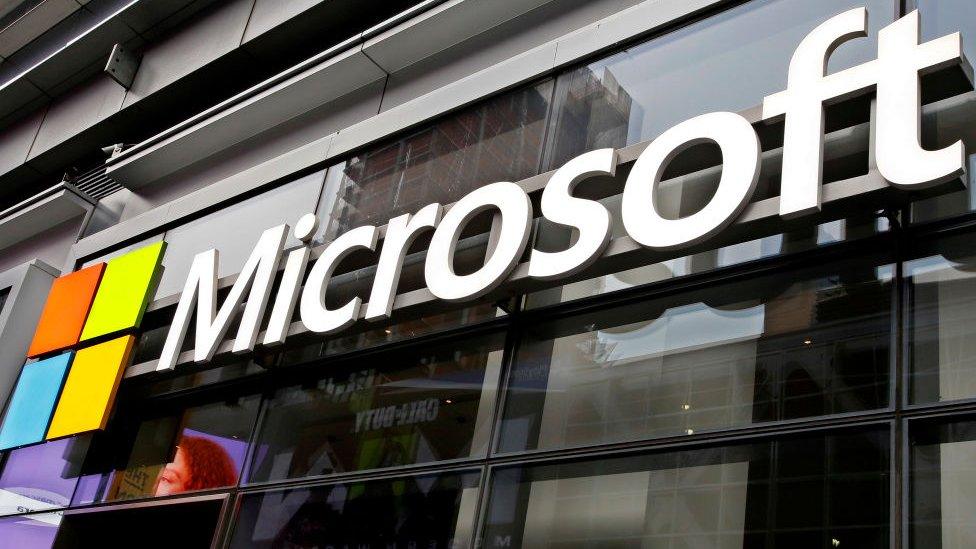Microsoft says services have recovered after widespread outage
- Published

Microsoft services have recovered after tens of thousands of users reported its products, including Outlook and Teams, had stopped working.
The company tweeted, external that its "impacted services have recovered and remain stable".
Downdetector, which tracks website outages, showed dwindling numbers of users reporting problems.
Microsoft blamed the outage on a change it made to its "Wide Area Network", which had now been "resolved"
In a statement to the BBC, Microsoft explicitly ruled out a cyber-attack as a potential cause of the issue.
Knock-on effect
Wednesday's problems affected a range of widely used Microsoft products.
Services including Teams and Xbox Live were also reported as not working.
Microsoft said cloud computing service Azure also experienced problems which affected "a subset of users".
The service provides computing power to many other businesses, some of which reported they were facing problems as a result.


Many people and businesses will be breathing a sigh of relief now Microsoft services have come back online.
But for the thousands who lost access to services, it's been a significant inconvenience. It is also a reminder of how much so many of us rely on Big Tech to help us run our lives and our businesses with products we can't control when they go wrong.
Systems and networks are always more vulnerable when maintenance or upgrades are under way, as there's more potential for the tiniest thing to either go wrong or not to plan - and the ripple effects, as we've seen today, can be widespread.
Eurostar, for example, tweeted that it was having problems with its services as a result of the outage affecting Azure - a popular rival to Amazon Web Services, and used by many big businesses for both storage and extra processing power.

Reports of problems came in from many countries, with Downdetector receiving thousands of reports in India and Japan alone.
But the impact seems to have been uneven, and relatively modest given the number of users of some of the affected systems.
Microsoft Teams, for example, is used by more than 280 million people globally, primarily in businesses and schools, where it can be of critical importance for calls, meetings and general service organisation.
Some users shared memes celebrating an unexpected break from work, or disappointment that their workplace Teams seemed unaffected.
As well as Teams and Outlook, the services affected, according to the Microsoft 365 status page,, external included SharePoint Online, OneDrive for Business, Microsoft Graph, PowerBi, and Microsoft 365 Admin Center.
Job cuts and sales down
The disruption came a day after Microsoft reported its sales rose only 2% in the three months to December, to $52.7bn (£42.8bn) - with overall profits falling by 12% to $16.4bn.
The slowdown in sales accounts for the corporation's smallest quarterly increase in more than six years.
Meanwhile, on 19 January, Microsoft announced it would reduce its workforce by roughly 5%, eliminating 10,000 jobs.
It is the latest round of staff redundancies to hit the tech industry, and will cost the business $1.2bn in severance and reorganisation costs.
Related topics
- Published24 January 2023

- Published18 January 2023

- Published28 December 2022
